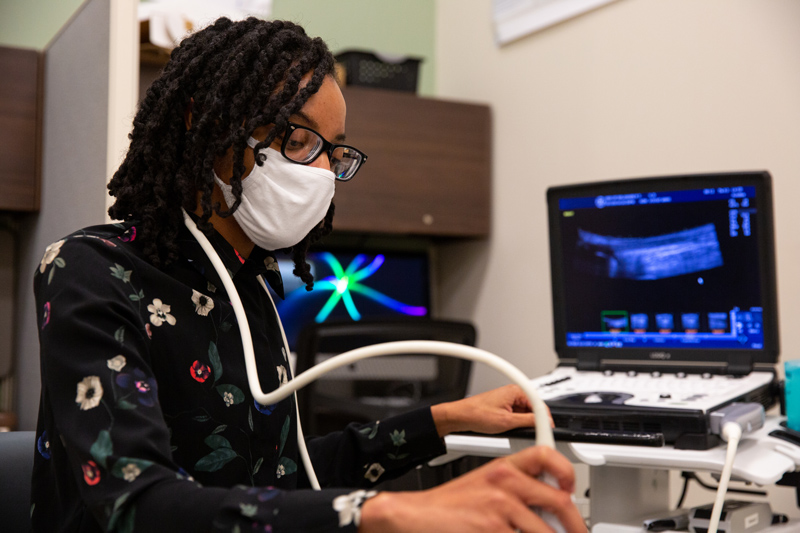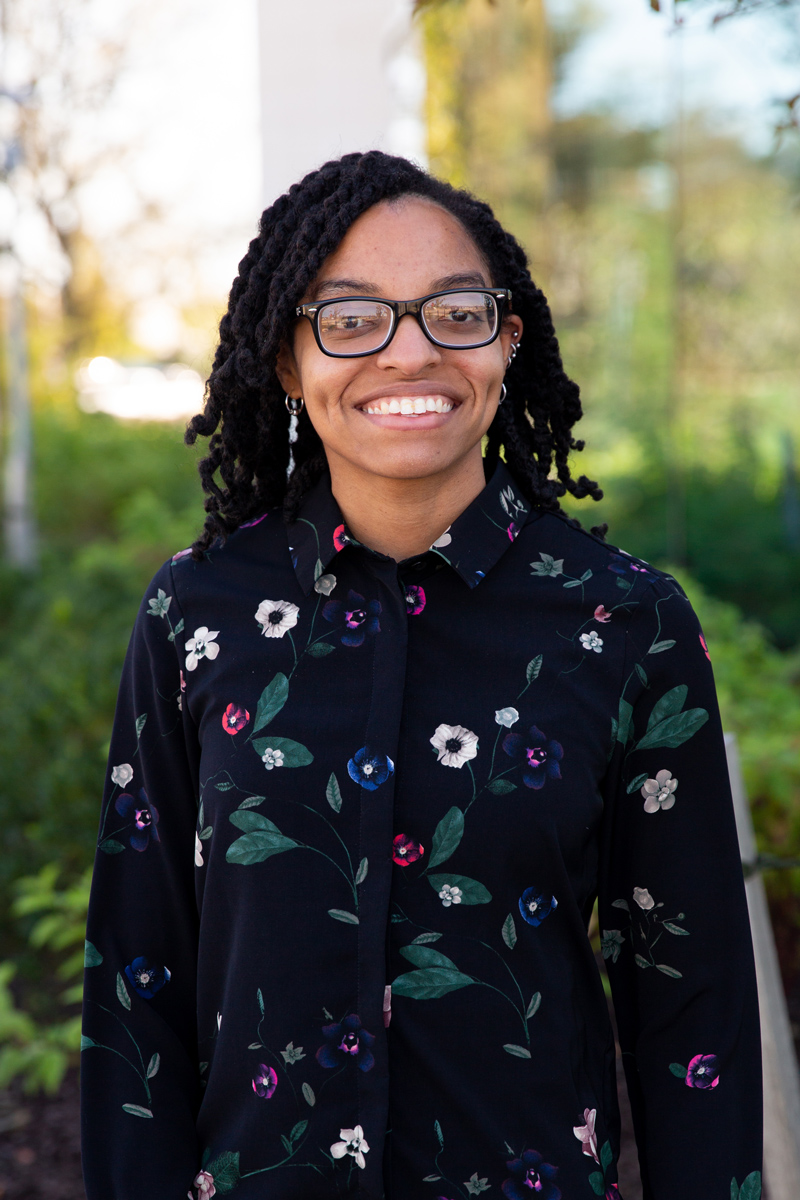


Increasing the visibility of Black scientists
Photo by Ashley Barnas November 10, 2020
Doctoral student Kayla Seymore co-founds Black Biomechanists Association to diversify the field
Kayla Seymore wants to help other Black scientists increase their visibility and numbers in research, labs and other STEM careers where they have been traditionally underrepresented. Seymore, a doctoral student in the University of Delaware Biomechanics and Movement Science (BIOMS) program, is a co-founder of the Black Biomechanists Association, which aims to provide professional development, funding opportunities and mentoring to encourage the engagement and retention of Black, Indigenous and people of color (BIPOC) within the field of biomechanics.
More than 100 people are members of the international organization, which was launched this summer at the American Society of Biomechanics meeting. Seymore founded the organization along with Matt McCollough, an associate professor at North Carolina A&T State University, and Erica Bell, a research fellow at the Mayo Clinic and a classmate of Seymore’s at East Carolina University, where she earned her master’s degree in exercise sport science/biomechanics.

“Seeing other Black scientists in STEM is a really big thing,” said Seymore, who started at UD in February and works in the Tendon Research Lab under Karin Grävare Silbernagel, an associate professor in the Department of Physical Therapy. “I really, really love this idea of having a supportive place to make Black scientists and biomechanists a little bit more visible and also to give resources to people on every single level, from tenured faculty all the way down to undergraduates who may not even know that they have a choice to become a biomechanist.”
Black people make up 11% of the U.S. workforce, but represent only 9% of STEM workers, according to a 2018 report by the Pew Research Center. Seymore said Black underrepresentation in STEM impacts jobs, research and health outcomes as well.
“There's a lot of research that is done on majority white subjects, but it's research that can affect minorities in a negative way,” said Seymore, who worked as a lab manager and research associate at Boise State University before starting her studies at UD.
“If you don't have the right population that you're recruiting for your research, that also impacts the interpretation of your science. And there's certain issues that we know — comorbidities like diabetes and risk of cardiac cardiovascular diseases — that specifically affect minorities. Like we're seeing right now, in a pandemic where you're having a bunch of different types of races being affected in different ways, the science is really, really important. And you have to consider all factors in that.”
In addition to increasing the participation of Black subjects in research, the Black Biomechanists Association also hopes to address systemic barriers for BIPOC within the biomechanics field and also provide professional development resources.
"Diversity is critical to excellence in STEM, and organizations like the Black Biomechanists Association are extremely valuable for engaging and supporting underrepresented students that are key to driving that excellence,” said Regina Wright, associate dean for diversity in the College of Health Sciences. “Affinity groups designed for underrepresented students, specifically, also attract students in ways that ordinary recruiting cannot. This association is a tremendous addition to the College of Health Sciences."
Seymore first became interested in biomechanics while an undergraduate at the University of Central Florida. A sports psychology internship prompted an interest in a fitness minor, which required a biomechanics class.
“I really loved it. I got to explore some sports science stuff but more like with a math and physics twist,” she said. “And I'm at heart a nerd. Math and science are my things.”
She first heard of Silbernagel’s work while in graduate school. Seymore was focused on hamstring research, but she was interested in Silbernagel’s research involving the tendon. While looking at doctoral programs, Seymore reached out to Silbernagel for more information. Her interest, coupled with her background in biomechanics and strong desire for mentorship, made Seymore a student to pursue.
“I tend to mainly take clinicians and physical therapists as Ph.D. students because I have a clinical trial going on. But Kayla also brings expertise in methods that we need as we are looking to more biomechanical and tissue mechanics,” Silbernagel said. “She's a rock star in general. It’s easy to be a mentor to her, too, because she wants to be mentored.”
As she juggles her doctoral work with launching an international organization, Seymore said she’s excited about the opportunities available in Delaware and across the country. The response from colleagues has been overwhelmingly positive.
“People are happy that this is happening because in some cases they are the only Black people at their school,” she said. “We’re just really hoping to connect with a lot of people and make the biomechanics community more diverse and bring the science up.”
Contact Us
Have a UDaily story idea?
Contact us at ocm@udel.edu
Members of the press
Contact us at 302-831-NEWS or visit the Media Relations website

